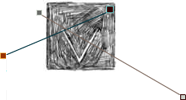Editor's Introduction
With the launch of these two projects by Emily Thompson and McKenzie Wark, Vectors proudly takes the next step in its evolution as a publisher and distributor of leading edge digital scholarship. Since Vectors launched in 2005, many more scholars have the capacity to produce multimodal research, and the number of venues for such work has slowly expanded. Thus, it is no longer necessary for our team to produce collaborative projects through the fellowship model with which we began nearly 10 years ago. Although we are now only occasionally creating in-house collaborative projects for the journal, Vectors continues to offer a platform for experimenting with the forms and potentials of online scholarship. In conjunction with its sibling project, the authoring platform Scalar, which shifts conceptualization of a project's basic interaction design and information architecture into the hands of scholars, Vectors will continue its role of pushing the boundaries of research in the arts, humanities and social sciences. As always, our goal is to showcase work that is not easily contained by the conventions - often still limited to portable documents and embedded video files - of contemporary electronic publication.
Vectors will also continue its commitment to publishing work that is subjected to rigorous, but mutable and multiple, forms of peer review, actively engaging questions of how best to ensure scholarly excellence in work that experiments with both form and content. Likewise, Vectors remains resolutely committed to remain free and open access, favoring work that speaks across disciplinary boundaries and with relevance beyond the virtual, physical and metaphorical walls of the academy. This transition in the Vectors workflow includes the shedding of print-based conventions of themed "issues" and numbered "volumes" in favor of the more agile format of rolling submissions and projects released individually or in clusters throughout the year. We therefore welcome completed project submissions on any topic, at any time, and in any format. We also encourage submissions of curated clusters and will continue to aggregate (with permission) various online contributions, as we always have. We look forward to continuing to publish and promote scholarly work that challenges, inspires, disrupts or expands scholarly discourse in new and unexpected directions.
With the launch of these two projects by Emily Thompson and McKenzie Wark, Vectors proudly takes the next step in its evolution as a publisher and distributor of leading edge digital scholarship. Since Vectors launched in 2005, many more scholars have the capacity to produce multimodal research, and the number of venues for such work has slowly expanded. Thus, it is no longer necessary for our team to produce collaborative projects through the fellowship model with which we began nearly 10 years ago. Although we are now only occasionally creating in-house collaborative projects for the journal, Vectors continues to offer a platform for experimenting with the forms and potentials of online scholarship. In conjunction with its sibling project, the authoring platform Scalar, which shifts conceptualization of a project's basic interaction design and information architecture into the hands of scholars, Vectors will continue its role of pushing the boundaries of research in the arts, humanities and social sciences. As always, our goal is to showcase work that is not easily contained by the conventions - often still limited to portable documents and embedded video files - of contemporary electronic publication.
Vectors will also continue its commitment to publishing work that is subjected to rigorous, but mutable and multiple, forms of peer review, actively engaging questions of how best to ensure scholarly excellence in work that experiments with both form and content. Likewise, Vectors remains resolutely committed to remain free and open access, favoring work that speaks across disciplinary boundaries and with relevance beyond the virtual, physical and metaphorical walls of the academy. This transition in the Vectors workflow includes the shedding of print-based conventions of themed "issues" and numbered "volumes" in favor of the more agile format of rolling submissions and projects released individually or in clusters throughout the year. We therefore welcome completed project submissions on any topic, at any time, and in any format. We also encourage submissions of curated clusters and will continue to aggregate (with permission) various online contributions, as we always have. We look forward to continuing to publish and promote scholarly work that challenges, inspires, disrupts or expands scholarly discourse in new and unexpected directions.
— Vectors Journal Editorial Staff


 Current Projects
Current Projects
